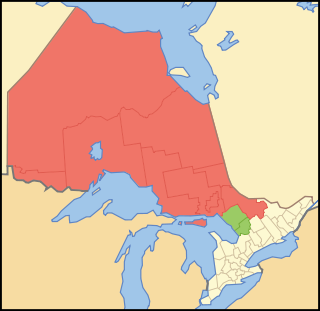
Northern Ontario is a primary geographic and quasi-administrative region of the Canadian province of Ontario, the other primary region being Southern Ontario. Most of the core geographic region is located on part of the Superior Geological Province of the Canadian Shield, a vast rocky plateau located mainly north of Lake Huron, the French River, Lake Nipissing, and the Mattawa River. The statistical region extends south of the Mattawa River to include all of the District of Nipissing. The southern section of this district lies on part of the Grenville Geological Province of the Shield which occupies the transitional area between Northern and Southern Ontario.
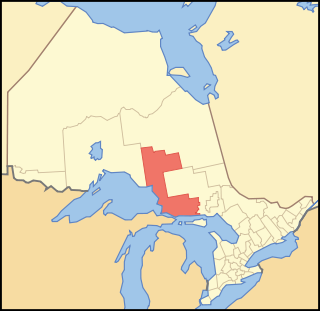
Algoma District is a district and census division in Northeastern Ontario in the Canadian province of Ontario.
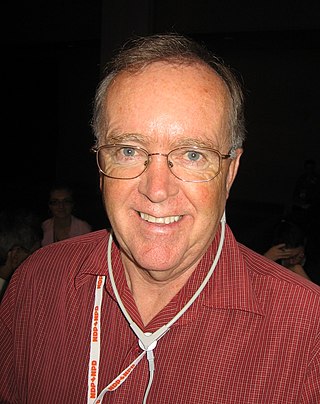
Anthony A. Martin is a Canadian politician. He was a member of the Legislative Assembly of Ontario from 1990 to 2003, representing the constituency of Sault Ste. Marie for the Ontario New Democratic Party (NDP). He subsequently served in the House of Commons of Canada, representing Sault Ste. Marie from 2004 until 2011.
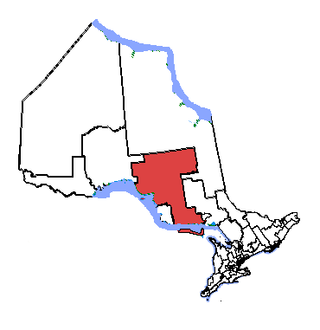
Algoma—Manitoulin—Kapuskasing is a federal electoral district in Ontario, Canada, that has been represented in the House of Commons of Canada since 2004. The area was represented by the riding of Algoma from 1867 to 1904 and from 1968 to 1996 and then by Algoma—Manitoulin from 1996 to 2004.
Jerry Fontaine is an Anishinaabe politician in Manitoba, Canada. He was chief of the Sagkeeng First Nation from 1989 to 1998, led the First Peoples Party in the 1995 provincial election, and was an unsuccessful candidate to lead the Manitoba Liberal Party in 1998. He was the director of Indigenous Initiatives at Algoma University from 2004-2008.
Charles Jackson "Bud" Wildman is a Canadian politician. He served in the Legislative Assembly of Ontario as a New Democratic Party Member of Provincial Parliament (MPP) from 1975 to 1999, representing the riding of Algoma, and was a cabinet minister in the government of Bob Rae.

The Algoma Central Railway is a railway in Northern Ontario, Canada, that operates between Sault Ste. Marie and Hearst. It used to have a branch line to Wawa. The area served by the railway is sparsely populated, with few roads.

Sault Ste. Marie is a federal electoral district in Ontario, Canada, that has been represented in the House of Commons of Canada since 1968.
Karl Arvid Morin-Strom is a former politician in Ontario, Canada. He served in the Legislative Assembly of Ontario from 1985 to 1990 as a member of the New Democratic Party.
Steve Butland is a Canadian politician. He represented the Sault Ste. Marie electoral district in the House of Commons of Canada from 1988 to 1993 as a member of the New Democratic Party.
Carmen Provenzano was a Canadian politician. He represented the Sault Ste. Marie electoral district in the House of Commons of Canada from 1997 to 2004. He was a member of the Liberal Party of Canada.
Russell Harold Ramsay was a politician in Ontario, Canada. He served in the Legislative Assembly of Ontario from 1978 to 1985, and was a cabinet minister in the government of William Davis. Ramsay was a member of the Progressive Conservative Party.
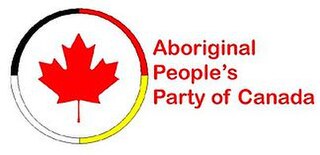
The Aboriginal Peoples Party of Canada (APP) was a Canadian political party that was founded in 2005. The party was conceived by University of Lethbridge student Myron Wolf Child. It held its founding meeting on August 21, 2005, in St. Albert, Alberta. The APP was headed by interim leader Bill Montour, a former Chief of the Six Nations Reserve in Ontario. In October 2005, the party had 122 confirmed members, just less than half the number needed to register as an official party in Canada. In late October 2005, the APP sought to unite with the First Peoples National Party of Canada which also had fewer than the number of confirmed members needed to become a registered political party. The First Peoples National Party of Canada became an eligible political party on December 6, 2005. Whether or not this was accomplished through a merger with the APP is unclear. If this is the case, the APP no longer exists, but, as one of the stipulations of a possible merger was that a name for the new party would be determined at the party's first convention, it is possible that the name Aboriginal Peoples Party of Canada will come into usage again.

Sault Ste. Marie is a provincial electoral district in the Legislative Assembly of Ontario, representing the City of Sault Ste. Marie.

Robert B. Oliphant is a Canadian politician and a United Church minister. He serves in the House of Commons as a Liberal Member of Parliament for the Toronto riding of Don Valley West. First elected from 2008 to 2011, he returned to office after re-election in 2015 and subsequently in 2019 and 2021.
Will Morin is a Canadian politician, who served as the leader of the First Peoples National Party of Canada from 2010 until the party's dissolution in 2013.
Bryan Hayes is a Canadian politician. He was elected to the House of Commons of Canada for the federal Conservative Party of Canada in the 2011 election, representing the Sault Ste. Marie riding.

Sault Ste. Marie is a city in Ontario, Canada. The third-largest city in Northern Ontario after Sudbury and Thunder Bay, it is located on the St. Mary's River on the Canada–US border. To the southwest, across the river, is the United States and the city of Sault Ste. Marie, Michigan. The two cities are joined by the Sault Ste. Marie International Bridge, which connects Interstate 75 on the Michigan side to Huron Street on the Ontario side. Shipping traffic in the Great Lakes system bypasses the Saint Mary's Rapids via the American Soo Locks, the world's busiest canal in terms of tonnage that passes through it, while smaller recreational and tour boats use the Canadian Sault Ste. Marie Canal.
Christian Provenzano is a Canadian politician, who was elected mayor of Sault Ste. Marie, Ontario, in the 2014 municipal election. He served as mayor until 2022.

The Mica Bay Incident was a land and resources dispute in along the shore of Lake Superior in November 1849. It is partially responsible for the signing of the 1850 Robinson-Huron Treaty.











